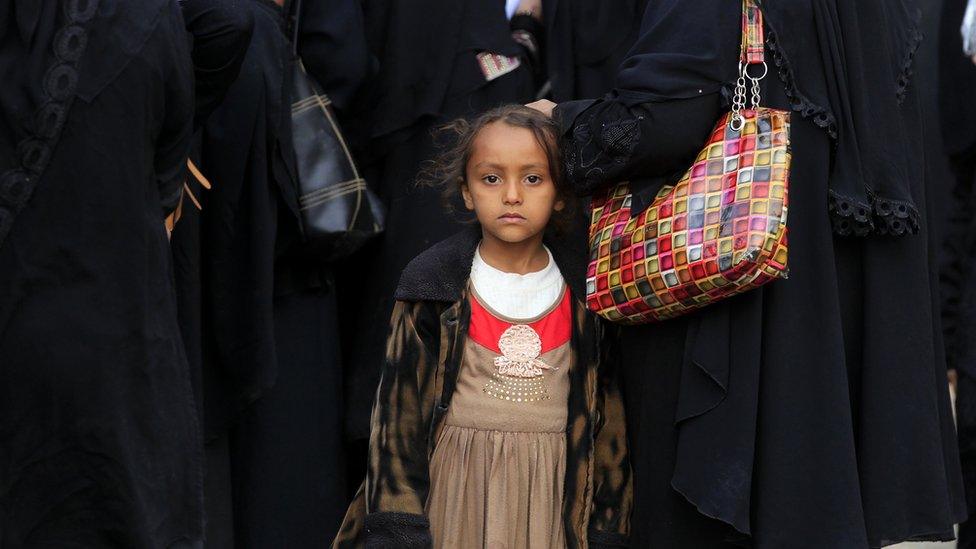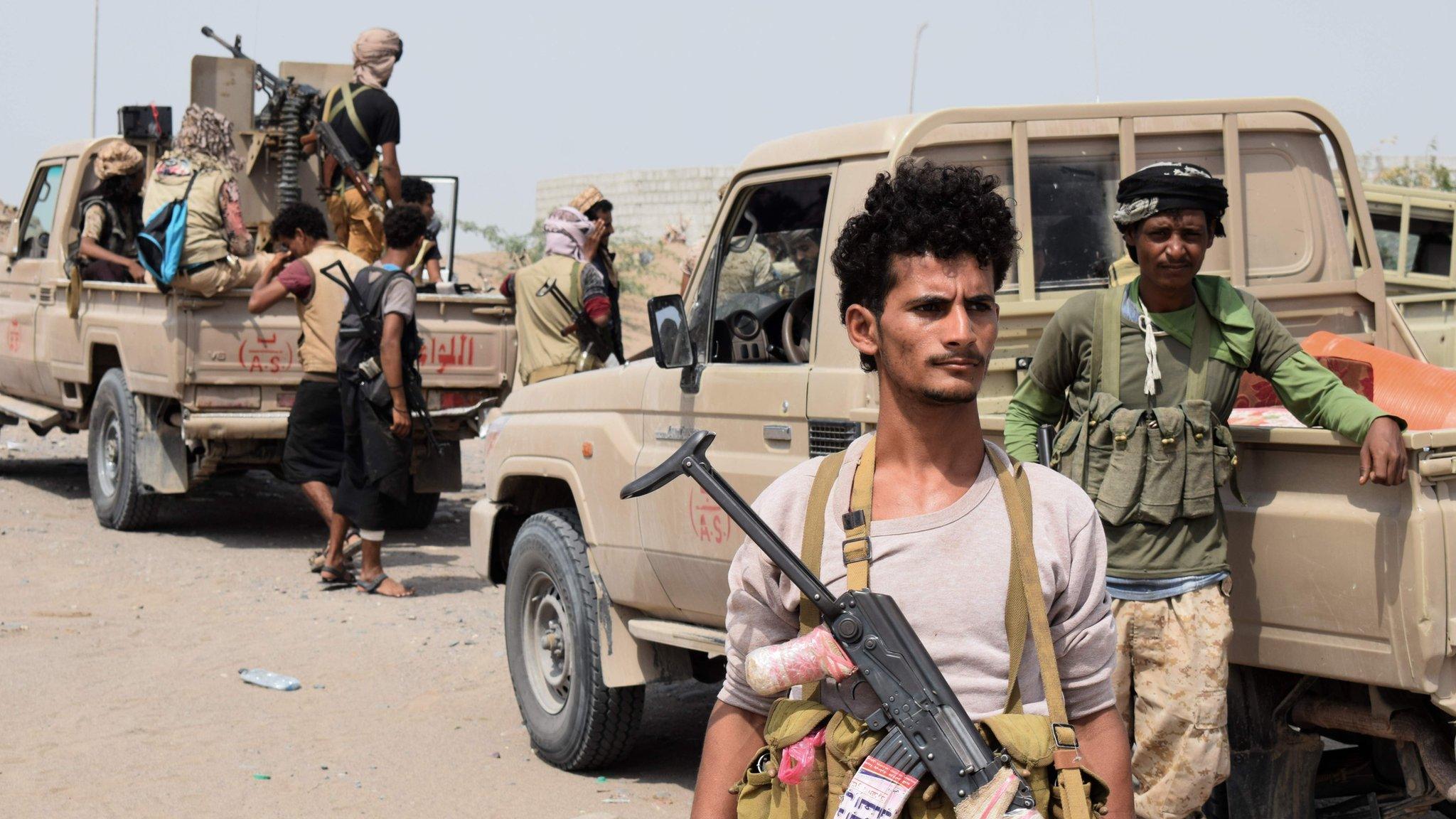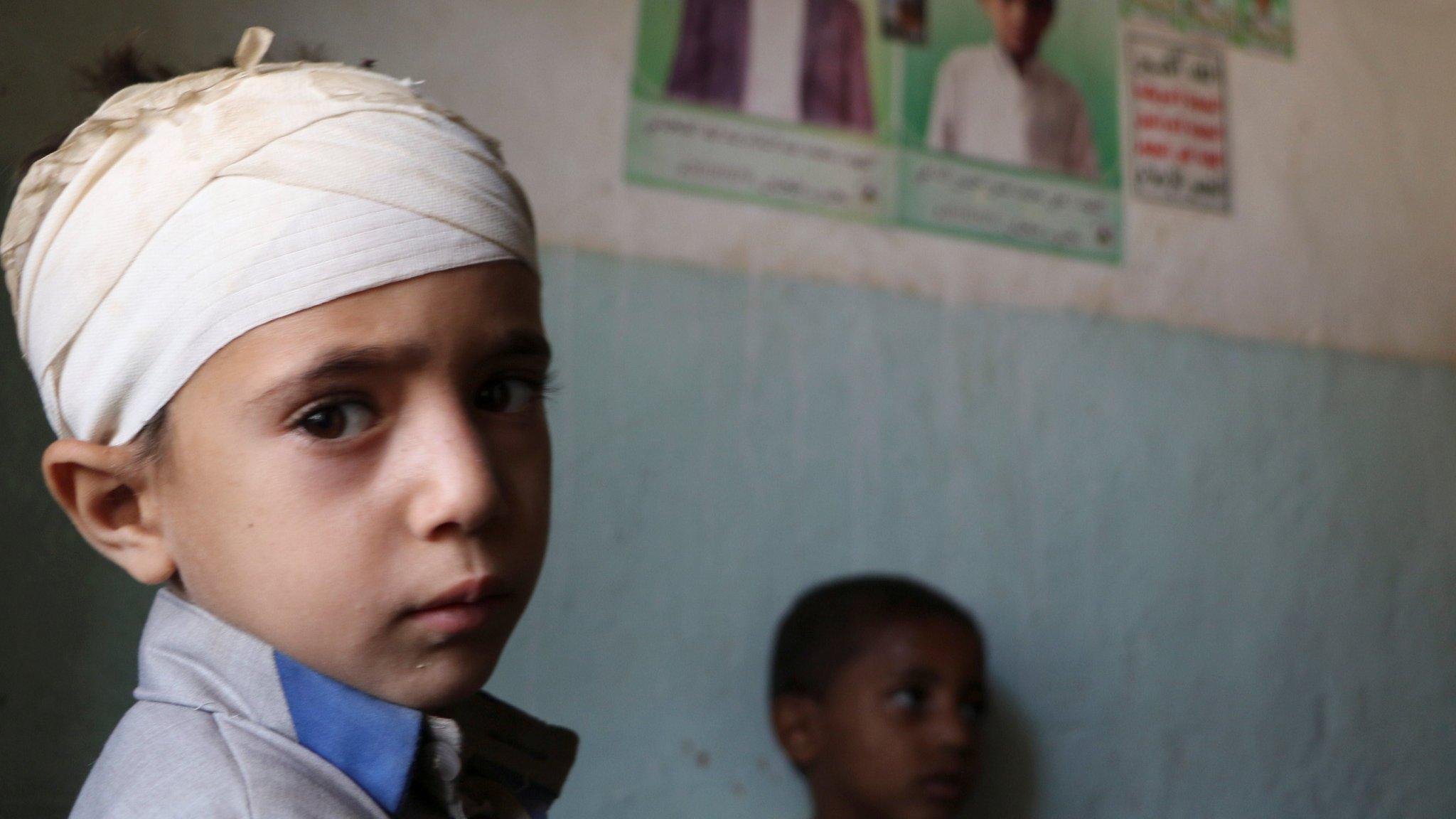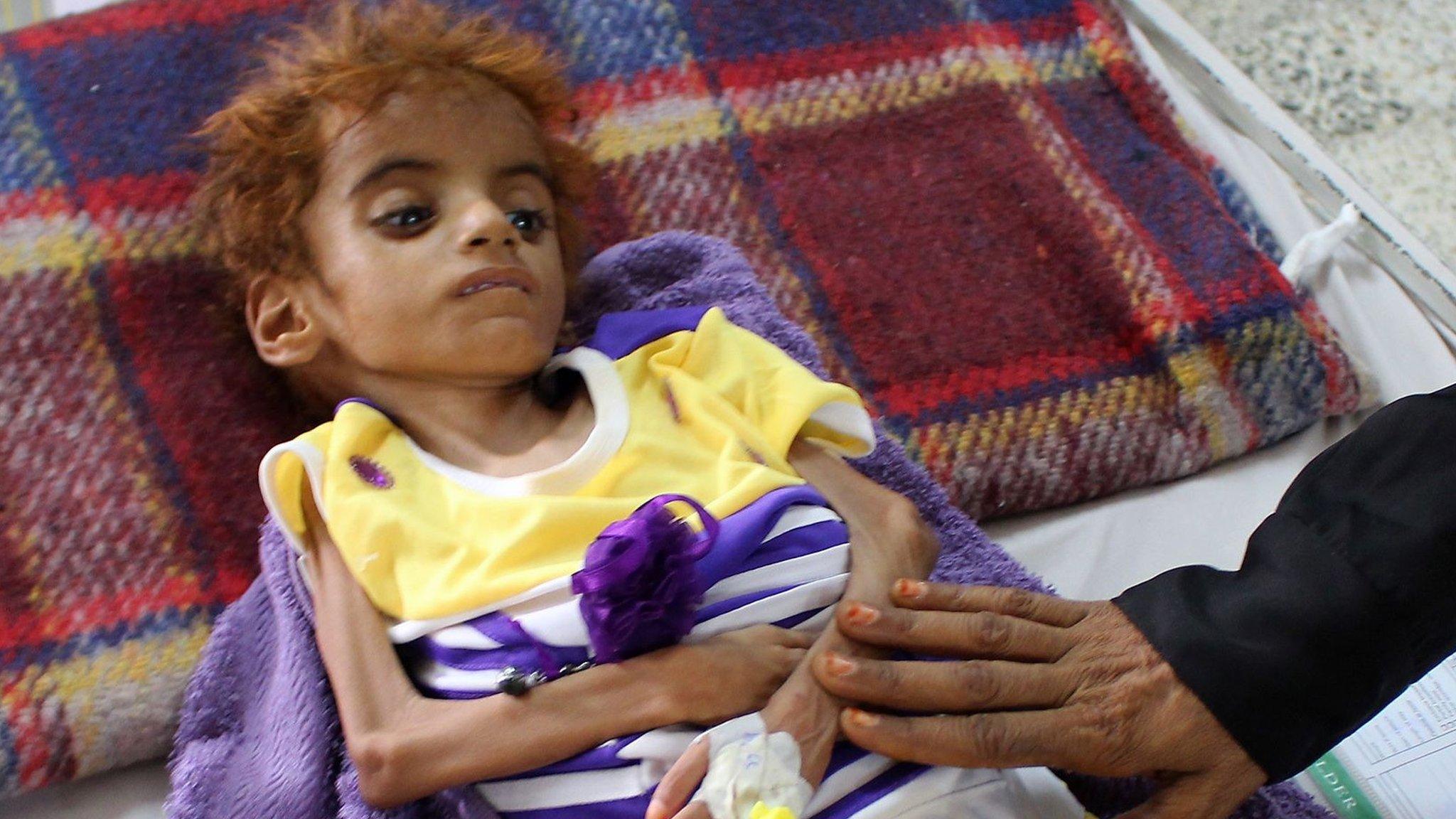Yemen war: Houthis 'halting drone and missile strikes'
- Published

Millions of Yemenis are at risk of starvation following three years of war
Yemen's Houthi rebels say they are halting drone and missile strikes on the Saudi-led military coalition after a request from the United Nations.
The move comes after the coalition ordered a halt in its offensive on the key Yemeni port of Hudaydah.
The UN is attempting to revive talks to end a three-year war which has caused the world's worst humanitarian crisis.
So far, the war has killed thousands and pushed millions more Yemenis to the brink of starvation.
Mohammed Ali al-Houthi, the head of the Houthis' Supreme Revolutionary Committee, said the decision to halt the strikes was made "after our contacts with the UN envoy" Martin Griffiths.
The statement added the Houthis were ready to move towards a wider ceasefire if "the Saudi-led coalition wants peace".
Saudi Arabia and the United Arab Emirates, which has been leading the offensive against Hudaydah, say they support the UN-led talks, which Mr Griffiths is hoping to convene before the end of the year.
He told the UN Security Council on Friday that he had been given "firm assurances" that both sides would attend, promising to accompany the Houthi representatives from the Yemeni capital of Sanaa if needs be.
The Houthis failed to show up at peace talks in September.
The UN says Yemen is on the brink of the world's worst famine in 100 years if the war continues
The Houthis' statement came a day before the UK is due to introduce a draft resolution on Monday at the UN Security Council on a ceasefire in Yemen and humanitarian access.
The UK, as well as the US and France, has provided logistical and intelligence support to the Saudi-led military coalition.
UK Foreign Secretary Jeremy Hunt has also promised to bring up Iran's role in the conflict during a visit to Tehran on Monday.
Why is there a war in Yemen?
Yemen has been devastated by a conflict that escalated in early 2015, when the Houthis seized control of much of the west of the country and forced President Abdrabbuh Mansour Hadi to flee abroad.
Alarmed by the rise of a group they saw as an Iranian proxy, the UAE, Saudi Arabia and seven other Arab states intervened in an attempt to restore the government.
At least 6,660 civilians have been killed and 10,560 injured in the fighting, according to the United Nations. Thousands more civilians have died from preventable causes, including malnutrition, disease and poor health.
- Published7 November 2018

- Published31 October 2018

- Published31 October 2018
- Published24 October 2018
